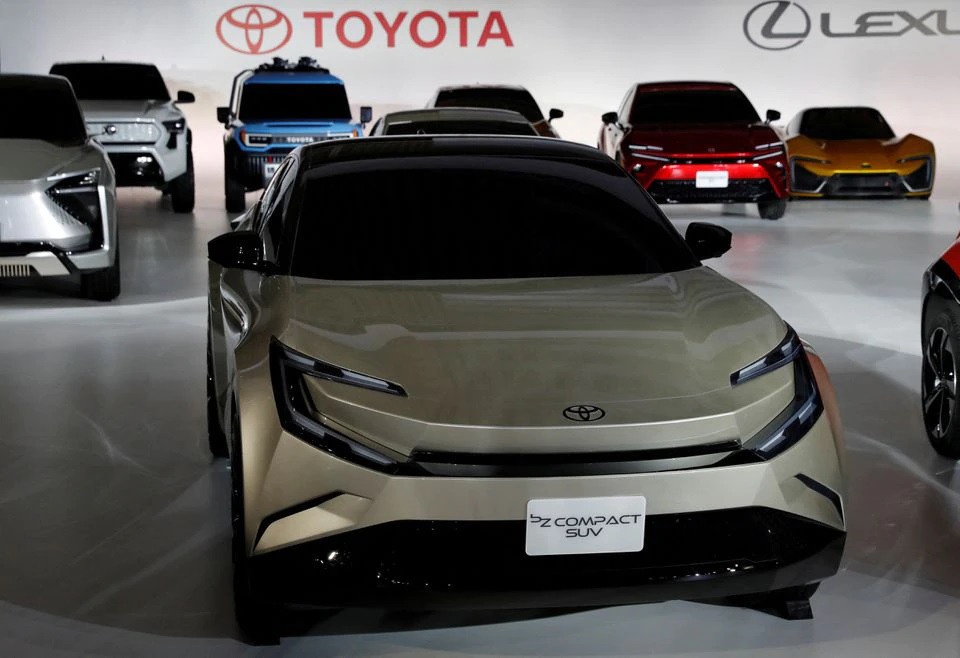TOKYO, May 28 (Reuters) – Proxy adviser Institutional Shareholder Services (ISS) has recommended that shareholders of Toyota Motor Corp (7203.T) vote in favour of a resolution urging the automaker to improve disclosure of its lobbying related to climate change.
ISS in a report also regarded three of Toyota’s four outside director nominees as not independent. Toyota said all candidates met the Tokyo Stock Exchange’s independence criteria.
The recommendation comes as Japan’s largest firm by market capitalisation faces pressure from green investors and climate activists which have criticised it for being slower than rivals to embrace all-battery electric vehicles (EVs).
Concerned that Toyota is missing out on profit from soaring EV sales, Danish pension fund AkademikerPension, Norway’s Storebrand Asset Management and Dutch pension investor APG Asset Management want Toyota to commit to a comprehensive, annual review of climate-related lobbying.
A Toyota spokesperson referred to a statement from the board in which it urged shareholders to vote against the proposal, saying the fluidity of such disclosure made the proposal unsuitable for enshrining in the articles of incorporation.
“Toyota does not provide shareholders with enough information to evaluate its lobbying activities,” ISS said.
“Shareholders would benefit from the company disclosing information about direct, indirect, and grassroots lobbying in the various regions where it operates.”
Hurdles are high for the resolution to pass because it requires a two-thirds majority and Toyota’s shareholder base includes suppliers and other business partners.
Proxy adviser Glass Lewis has not backed the resolution, saying Toyota has shown “significant responsiveness” to shareholders.
Toyota, which seeks to sell 1.5 million all-battery EVs by 2026, has long argued that a range of power solutions, such as battery-petrol hybrid and hydrogen fuel cells, will be necessary to reach carbon neutrality.
This month, Toyota’s top scientist said focusing on all-battery EVs could encourage some drivers to hold onto polluting vehicles, and that a lack of resources means battery-only cars cannot be the industry’s sole response to climate change.
INDEPENDENCE
ISS also argued that three of four nominees to Toyota’s 10-member board that the automaker said are independent should be considered “affiliated” due to the firm’s relationships with the nominees’ current or former organisations.
Such organisations include the International Paralympic Committee, with which Toyota has mobility partnership, and the firm’s main lender, Sumitomo Mitsui Financial Group Inc (8316.T).
“We have determined there are no concerns regarding the objectivity, independence and ability to conduct appropriate oversight,” Toyota said in a statement.
Japan’s corporate governance code requires at least one-third of directors be independent at companies listed on Tokyo’s bourse’s main section.
Still, ISS recommended a vote in favour of the candidates as voting otherwise “may run the risk of actually increasing management dominance of the board”.











